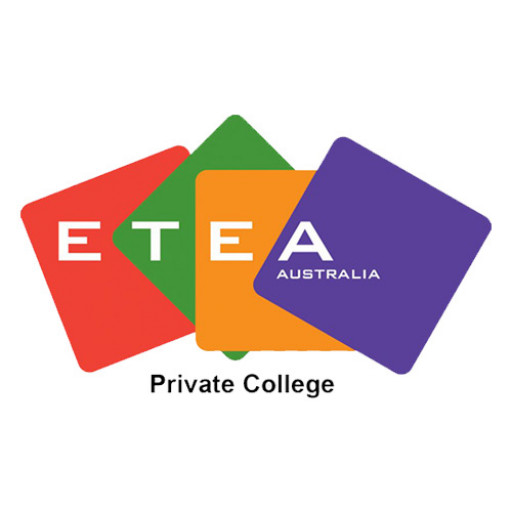Disability Studies at Swinburne University of Technology offers an in-depth exploration of the social, political, and cultural aspects of disability, aiming to foster a comprehensive understanding of disability rights, advocacy, and inclusion. This program is designed for students who are passionate about making a positive difference in the lives of individuals with disabilities, promoting accessibility, and influencing policy and societal attitudes. Throughout the course, students will examine the historical and contemporary perspectives on disability, critically analyze how societal structures impact people with disabilities, and develop practical skills to support inclusive practices across various sectors. The curriculum integrates theoretical knowledge with practical applications, including opportunities for internships, community engagement, and collaboration with disability organizations. Students will learn about the legal frameworks and policies that govern disability rights nationally and internationally, equipping them with the tools to advocate effectively for equal opportunities. The program emphasizes the importance of a multidisciplinary approach, drawing from fields such as psychology, social work, health sciences, and education, to prepare graduates for diverse career paths in advocacy, policy development, health services, and community support. Faculty members are experienced professionals and researchers dedicated to advancing disability rights and fostering an inclusive learning environment. Upon graduation, students will possess the critical thinking skills and practical expertise necessary to contribute meaningfully to the development of inclusive policies and practices, supporting the goal of creating a society that values diversity and ensures equitable access for all individuals with disabilities. Swinburne’s Disability Studies program is committed to empowering students to become leaders and change agents in the ongoing pursuit of social justice, inclusion, and equality for people with disabilities worldwide.
The Bachelor of Disability and Community Support at Swinburne University of Technology is designed to prepare students for a rewarding career in supporting individuals with disabilities, promoting community inclusion, and advocating for social justice. This comprehensive program combines theoretical knowledge with practical skills to equip graduates with an in-depth understanding of disability systems, policies, and best practices in support services. Throughout the course, students engage with a wide range of topics, including disability rights, person-centered approaches, ethical considerations, mental health, and inclusive community development. The curriculum emphasizes the importance of empathy, cultural sensitivity, and effective communication to foster meaningful relationships with clients and their families.
Students will gain hands-on experience through industry placements, allowing them to apply their learning in real-world settings such as community organizations, health services, and support agencies. The program also covers essential areas such as occupational therapy, case management, assistive technologies, and crisis intervention, ensuring graduates are well-prepared to meet diverse needs in various environments. Additionally, the course encourages students to develop critical thinking and problem-solving skills essential for designing individualized support plans and advocating for social change.
Swinburne’s Bachelor of Disability and Community Support is aligned with contemporary practices and policies, emphasizing person-centered, inclusive, and sustainable approaches to disability support. Graduates of this program are equipped to work in roles such as support workers, community development officers, case managers, and advocacy coordinators. The program’s flexible delivery mode includes interactive lectures, group projects, and community engagement activities, fostering a collaborative learning environment. Upon graduation, students will be prepared to contribute positively to the well-being of individuals with disabilities and promote equitable participation in society. This program is ideal for those passionate about making a difference in people’s lives through compassionate, ethical, and professional practice.
The Disability program at Swinburne University of Technology is designed to provide students with comprehensive knowledge and practical skills to support individuals with disabilities across various settings. The program emphasizes an inclusive approach, fostering an understanding of diverse disabilities, policies, and ethical considerations related to disability support. Students are expected to complete core courses covering topics such as disability studies, support strategies, legal and policy frameworks, and communication techniques tailored to individuals with disabilities. Practical placements and fieldwork form a significant component of the curriculum, enabling students to apply theoretical knowledge in real-world contexts and develop essential interpersonal skills. To graduate from the Disability program, students must achieve a designated number of credit points through successfully completing both theoretical modules and practical assessments. Admission requirements typically include a completed secondary education, with a preference for relevant foundational knowledge or experience in health or social services. The program also promotes critical thinking, cultural competence, and an ethical approach to disability support, preparing graduates for careers in community services, healthcare, and advocacy organizations. Swinburne offers various support services and accommodations to assist students with disabilities in meeting program requirements, ensuring an inclusive learning environment. Additionally, students are encouraged to engage in extracurricular activities, workshops, and seminars that enhance their understanding of contemporary issues in disability and inclusion. Graduates of the program are equipped to work effectively with diverse populations, advocating for disability rights and implementing best practices in support provision. The program's emphasis on evidence-based approaches and multidisciplinary perspectives aims to produce well-rounded professionals capable of contributing meaningfully to the evolving field of disability services.
The Swinburne University of Technology offers financing options for students enrolled in its Disability programs to ensure access to quality education. Students can explore a variety of funding opportunities, including government scholarships, financial aid, and payment plans tailored to support students with disabilities. The university participates in government initiatives such as Commonwealth Supported Place (CSP) schemes and offers scholarships specifically aimed at students with disabilities to reduce financial barriers. Additionally, Swinburne provides flexible payment arrangements and fee assistance programs to help students manage their educational expenses effectively. Students are encouraged to apply for the Australian Government’s Disability Support Pension and other specialist grants designed to support students with disabilities in higher education. The university’s financial counseling services assist students in understanding their eligibility and navigating the application process for various funding options. Furthermore, Swinburne’s commitment to inclusivity ensures that students with disabilities can access tailored support services, which may include financial guidance and advice to facilitate their educational journey. International students with disabilities can also benefit from specific scholarship programs and financial schemes to offset costs associated with studying abroad. Swinburne’s transparent fee structure and dedicated student support teams aim to create an accessible financial environment, promoting equal opportunities for all students pursuing a degree in Disability studies. Through these comprehensive financing options and supportive services, students can focus on their academic and professional development without undue financial stress. Overall, Swinburne University is dedicated to providing accessible and equitable financing solutions for students with disabilities, ensuring that their educational aspirations are achievable and sustainable.
The Bachelor of Disability and Community Support at Swinburne University of Technology is a comprehensive program designed to prepare students for a meaningful career in supporting individuals with disabilities and contributing positively to community development. The curriculum combines theoretical knowledge with practical skills, equipping graduates to understand diverse disabilities, implement inclusive practices, and deliver person-centered support. Courses cover areas such as disability law and policy, communication techniques, ethical considerations, and support planning. Students gain hands-on experience through industry placements, which are integral to the program and allow for real-world application of learned skills. Swinburne emphasizes innovative learning approaches, integrating technology and community engagement to ensure students are workforce-ready upon graduation. This program aims to foster empathetic, ethical, and effective professionals committed to promoting social inclusion and improving quality of life for individuals with disabilities. Graduates are prepared for roles in disability support agencies, community organizations, healthcare settings, and government departments. The program underscores the importance of collaboration, cultural competency, and advocacy in delivering quality support services. Swinburne also offers pathways and support services to assist students throughout their studies, recognizing the importance of accessibility and inclusivity. By completing this program, students contribute to building inclusive communities where all individuals have equal opportunities to participate fully in societal life. The university continually updates its curriculum to reflect current industry standards and legislative changes, ensuring that graduates are equipped with relevant skills and knowledge to meet contemporary challenges in disability and community support.









